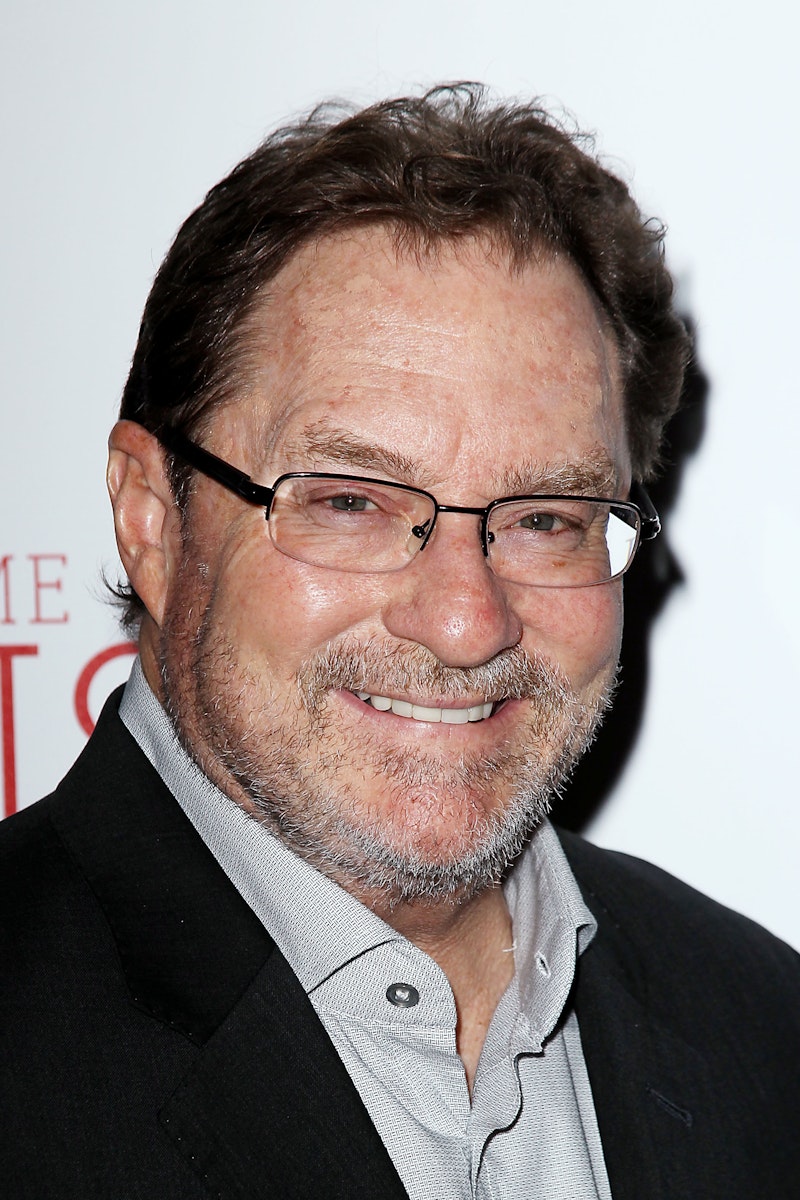One night, maybe a decade ago, I was sitting at a table in the upper level of Club Charles with my girlfriend. She pointed to a gentleman sitting at the bar on the lower level and said, “I think that’s Stephen Root.” Even though his back was turned to me and I couldn’t really see him, I was incredulous. A great actor like Root would surely have better things to do than drink with the patrons of Baltimore’s favorite bar. “If that’s Stephen Root, I’ll suck his dick,” I joked. Then a man at the bar who I’m sure was Root turned around and looked right at me, as if to call my bluff. It’s a debt that I’ve been running from ever since.
I don’t want to blow Stephen Root. But I’m a man of my word and, as such, more than happy to at least fellate him in the critical sense, having never found a single fault in his extensive filmography. Every performance is good, even in movies that were clearly for pay, like Mike and Dave Need Wedding Dates (underrated) or Drillbit Taylor. He’s the kind of dependable supporting player that demands Roger Ebert’s Stanton-Walsh rule—that “no movie featuring either Harry Dean Stanton or M. Emmet Walsh in a supporting role can be altogether bad”—be amended to include him. They’d surely chisel out some room for Root’s jowly visage in the Mt. Rushmore of great character actors, right alongside Stanton and Walsh and Yaphet Kotto—the Other Guys of American screen acting.
The key to Root’s success as an actor might be, to use his own words, “playing kind of a big character very small.” He said that in reference to his role in Office Space as downtrodden office punching bag Milton. Despite his soft-spokeness, Milton’s a big character, both in how important his arc ends up being to the movie’s plot and how memorable his scenes are. Think of Office Space and there’s a good chance the first image that comes to mind is Milton’s Red Swingline, the film’s Chekhov’s Stapler, whose theft enrages Milton and indirectly brings about the demise of Innotek. That just beneath the surface level acting—his pained, nervous expression as he watches the dwindling plates of birthday cake get passed around the office to everyone but him, or the way he mumbles under his breath “I’ll set the building on fire”—is exactly what Root means when he talks about playing it very small, the defining quality of his acting style.
Much of Root’s power can be found in his throaty Florida good old boy accent, utilized over the years in his parallel career as a voice actor, most notably as the unfortunate Bill Dauterive on King of the Hill. Like Milton, Bill has been steamrolled by life. Where they differ is that Bill seems mostly resigned to this fate; not unlike Moe Szyslak on The Simpsons, that passive acceptance of his position at the lowest rung of the social ladder is a large part of what makes the character so funny, which Root can convey through something as simple as a faint sigh or a forlorn ohhhh. (Hardly one-note, Root also voices Hank Hill’s debauched boss Buck Strickland, self-assured powder keg of boozy licentiousness and polar opposite of Bill.)
A longtime member of HBO’s unofficial playhouse (a rotation of actors that includes Edie Falco, Aiden Gillen and the late Michael K. Williams), Root has played memorable roles in no less than three of the channel’s recent hits: the slimy LA district attorney Maynard Barnes in Perry Mason; GOP mega-donor Ron Petkus on Succession; and meatiest of all, Monroe Fuches, mentor/svengali to the titular hitman of Barry. Fuches’ shift from master manipulator to selfless stalwart is the final season’s most compelling character arc: a man who has hit his absolute rock bottom and, instead of conniving to dig his way out, finds dignity in remaining loyal to Barry, even after his friend has betrayed him and cooperated with the Feds. Root has compared Fuches to Bill Dauterive in their devotion to the few friends they have, and when the prison guards try to beat Barry’s location out of Fuches in a recent episode, his sad cries carry echoes of Bill’s lonely wail.
The term “character actor” gets thrown around a lot, not always justifiably, but Root’s the real deal: a supporting player who brings craft and nuance to every performance, no matter how small. True to his name, Root has a way of planting himself in a given character, becoming an immovable component of any scene he inhabits. We’ve seen him many times before. We know he’s Stephen Root, from his face and mannerisms and unmistakable voice, but he so fully becomes the characters he plays that each role bewitches us anew. Root doesn’t do the kind of Streepian capital-A Acting that wins actors awards, which may explain why he remains so underappreciated. His technique is often imperceptible, virtually invisible. That’s what makes him the best.

